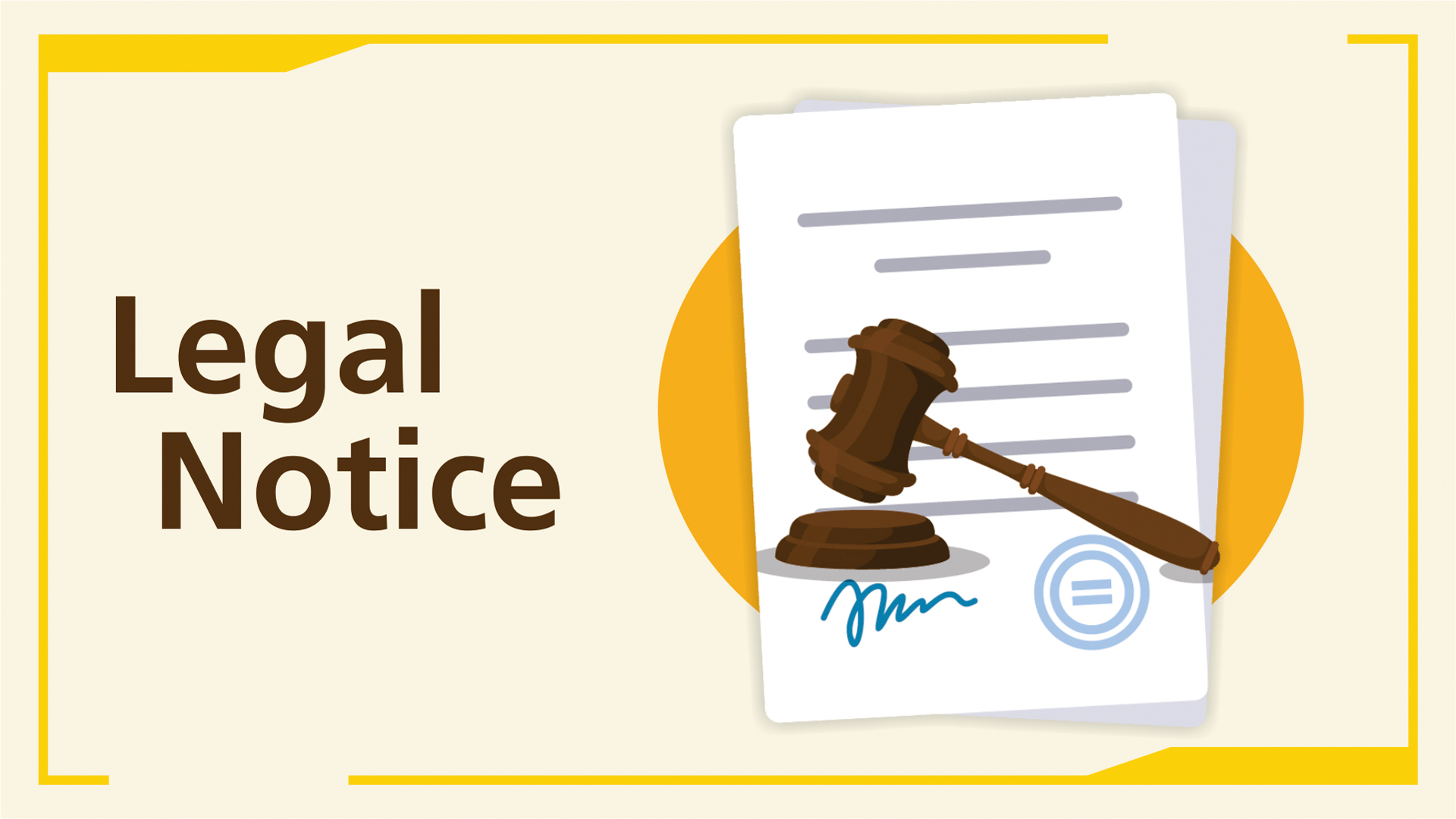A broad message to a person informing them that legal action will be taken against them is known as a legal notice. Before filing a lawsuit, it is crucial to take this action. It can also be seen as a warning to the other party that legal action may be taken against them. If the person receiving the letter does not react, legal action should be taken against them rather than providing a warning. An accused party who was involved is given a set amount of time to respond to a legal notice, telling the court of his agreement or disagreement with the allegations made in it.
More about Legal Notice
A “Legal Notice” is a formal and written legal notification that is sent to the other party by the party who has been injured civilly. If the demands listed in the Notice are not met, this Notice serves as notice that a lawsuit against the other party is being prepared. According to the Civil Procedure Code of 1908, sending a legal notice is a formal obligation that must be fulfilled before submitting a case to a court of law.
All of the aggrieved party’s facts, complaints, and the legal remedy he is requesting from the defendant must be included in a legal notice delivered to the accused. The sender of the notice is referred to as the Sender, and the recipient is referred to as the Addressee. The Sender may personally serve it or have his chosen advocate do so on his letterhead.
It is meant to serve as notice to the defendant that the aggrieved party intends to file a lawsuit against him in court if the issues raised therein cannot be resolved peacefully. The defendant is given a deadline by which he must respond or respond, stating whether he agrees or disagrees with the information in the legal notice. However, if the defendant ignores the legal Notice, the offended party will have the upper hand in the subsequent litigation.
Find lawyers for online legal consultation Click here
In what cases can we send a legal notice?
We can serve legal notice on the defendant in the majority of ordinary instances, including those involving property disputes, cheque dishonour, family disputes over asset division, husband-and-wife conflicts, consumer complaints, and situations in which pay agreements were not kept.
Who can send the legal notice?
A customer may issue legal notice on their own, which the clients may later identify and issue through an appropriate attorney. Therefore, everyone who is a consumer or an individual can prepare a letter of notification for your problems at first. These are the various provisions that make up a legal notice. A simple fact that has been brought up for assertion. the relief a plaintiff is requesting from each defendant listed in the legal notice. a succinct explanation of the legal foundation for the relief requested.
How to send a legal notice?
Commonly, we don’t understand the significance of legal notification and only occasionally utilise the word. Therefore, when using language of this nature, we seek the advice of a qualified attorney to make the wording of a legal notification simple.
We must use the utmost caution when writing the Legal Notice in terms of word choice.
The language must be utilised carefully and exactly without conceding any later-emerging facts.
be rebuffed by a judge in court. You might not be able to make any changes to the legal notice once it has been written and sent. Be extremely cautious and move wisely in the direction of the proper choice.
Step 1
Consult with a lawyer who is skilled at creating legal notices. Any Indian language may be used to send this message, however English is generally the preferred option. The individual with whom you have a complaint should get the notice.
Step 2
While consulting with the lawyer, you may require to explain the information in a detailed manner, along with the parties who have been involved and their names if possible to mention. Dates when the commitments are made and not dishonored, challenges and issues faced any previous attempts of dialogue, etc. In most recent cases especially the conflicts between husband & wife, I have observed that this can often bring the spouse for negotiation. In many instances, this may be solved through Family counseling to both of them.
Step 3
The attorneys will carefully review the case you gave them, gather all pertinent material, share it with you, and ask if any further information is needed to be included.
Step 4
The attorney will explicitly state the cause for sending the legal notice to the addressee when drafting the document in the appropriate language. Additionally, the prior correspondences praising the cause of notification and providing a reasonable window of opportunity for resolution must be considered.
This will vary depending on the complaint, but often the attorney must act on behalf of the client and emphasise that the defendant must answer to the action within a certain amount of time.
Step 5
The notice has to be duly signed by both the clients and the lawyer. It can be either sent via registered post or courier. After sending the notice a copy should be retained to the lawyer.
Step 6
Informally, we anticipate that the other party will need to respond as soon as he receives the notice.
But as a matter of course, we must occasionally make calls because it is a good habit to get into.
Importance of filing a legal notice:
In some circumstances, it may be unclear how to take legal action against a person in order to remedy a problem. A new step in the lawsuit process can be the filing of legal notice.
As a result, there are various traits where it is crucial. I intend to serve a legal notice on the defendant stating that I will file a lawsuit to address the issues raised by the legal notice as a fresh start for your legal ordeal. With the aid of an advocate, a client can readily describe his wrongful act in a legal notification. It serves as a reminder for the defendant who has received this legal notice, allowing him to thoughtfully contemplate this matter and resolve it before attending.
Legal Notice Format
If you are planning to draft a legal notice, these are the following essential ingredients that are required to be present in a legal notice:-
- Name and address of the Sender
- Cause of Action
- Facts and Contentions of the Sender
- The relief claimed by the Sender
- Legal contentions and charges
- Stamp and Signature of the advocate sending the Notice
ARE YOU HAVING ANY PROBLEMS BUT CAN’T CONSULT TO ANYONE?
Talk to us! We promise we can help you! Get Appointment Now!




